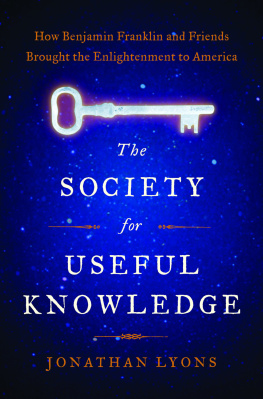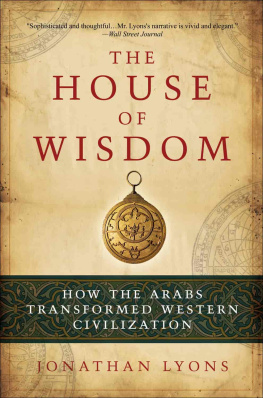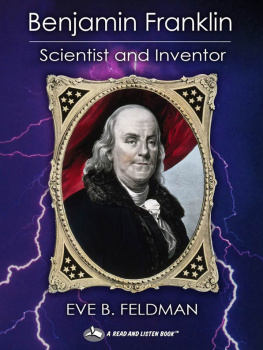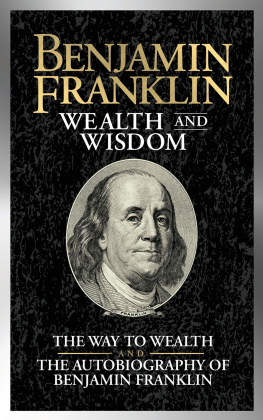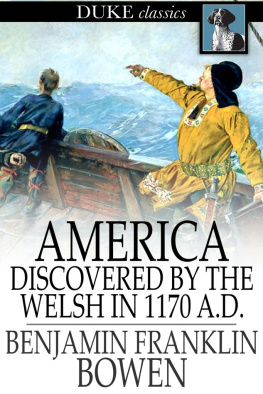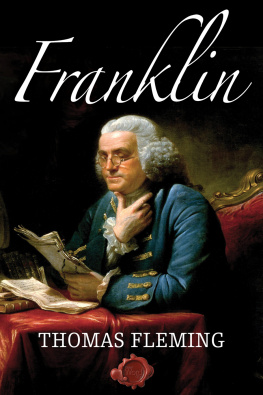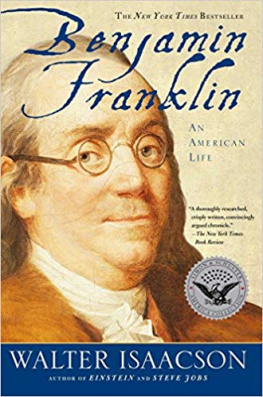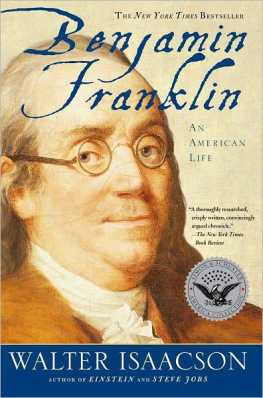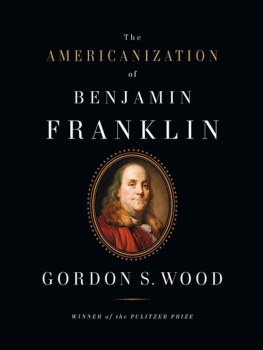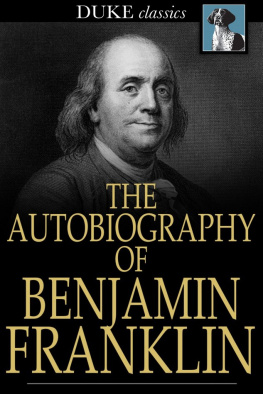Benjamin Franklin placed the social element at the very center of his conception of useful knowledge, so I am particularly delighted to note that the knowledge production on these pages represents something of a cooperative effort. Like Franklin, I, too, benefited from the opportunity to try out my ideas on a diverse group of talented friends, associates, and colleagues.
Foremost, I want to thank Michelle Johnson for her steady hand as reader, adviser, and companion throughout this journey. Cecile Baril, Evelyn Lyons, and Bryce Johnson read early iterations of the manuscript and provided helpful comments along the way. Kevin Cross shared many pleasant hours over mussels and beer discussing theoretical and practical aspects of useful knowledge. Lewis Lapham contributed helpful leads and provided welcome enthusiasm for the project from the outset.
Also, I want to thank my longtime agent, Will Lippincott, for once again helping me realize the promise hidden in the original conception, as well as my editors at Bloomsbury Press, Peter Ginna and Pete Beatty, for the support, advice, and close reading of the manuscript needed to see this project through to fruition. Needless to say, the final results and any errors of omission or commission remain firmly my own doing.
Jonathan Lyons is the author of The House of Wisdom: How the Arabs Transformed Western Civilization, Islam Through Western Eyes: From the Crusades to the War on Terrorism, and Answering Only to God: Faith and Freedom in Twenty-First-Century Iran (co-authored with Geneive Abdo). He served as editor and foreign correspondent for Reuters for more than twenty years. He holds a doctorate in sociology, and has taught at George Mason University, Georgetown University, and Monash University in Australia. He lives in Portland, Oregon.
Aldridge, Alfred Owen. Benjamin Franklin: Philosopher & Man. Philadelphia: Lippincott, 1965.
. Thomas Paine and the Classics. Eighteenth-Century Studies 1 (4): 37080.
American Philosophical Society. Early Proceedings of the American Philosophical Society for the Promotion of Useful Knowledge. Philadelphia: McCalla & Stavely, 1884.
. An Historical Account of the Origin and Formation of the American Philosophical Society [1841]. Philadelphia: American Philosophical Association, 1914.
. Laws & Regulations. Transactions of the American Philosophical Society held at Philadelphia for Promoting Useful Knowledge 1 (Old Series): vix.
Anderson, Douglas. The Radical Enlightenments of Benjamin Franklin. Baltimore: Johns Hopkins University Press, 1997.
Arch, Stephen Carl. Benjamin Franklins Autobiography, Then and Now. In The Cambridge Companion to Benjamin Franklin, ed. Carla Mulford, 159171. New York: Cambridge University Press, 2008.
Bacon, Francis. The Philosophical Works of Francis Bacon, ed. John M. Robertson. London: Routledge, 1905.
Barnett, S. J. The Enlightenment and Religion: The Myths of Modernity. Manchester: Manchester University Press, 2003.
Barton, William. Essay on the Promotion of American Manufactures. American Museum 2: 25859.
Bartram, John and William Bartram. John and William Bartrams America: Selections from the Writings of the Philadelphia Naturalists, ed. Helen Gere Cruickshank. Greenwich, CT: Devin-Adair, 1990.
Bartram, William. Travels, and Other Writings. New York: Library of America, 1996.
Bastian, Peter. Lets Do Lunch: Benjamin Franklin and the American Character. Australasian Journal of American Studies 24 (1): 8288.
Bates, Ralph S. Scientific Societies in the United States, 3rd ed. Cambridge, MA: MIT Press, 1965.
Becker, Carl L. Benjamin Franklin. In Dictionary of American Biography. New York: Scribners, 1931.
. The Heavenly City of the Eighteenth-Century Philosophers. New Haven: Yale University Press, 1932.
Bedini, Silvio A. At the Sign of the Compass and Quadrant: The Life and Times of Anthony Lamb. Philadelphia: American Philosophical Society, 1984.
Bell, Whitfield J., Jr. As Others Saw Us: Notes on the Reputation of the American Philosophical Society. Proceedings of the American Philosophical Society 116 (3): 26978.
. Patriot-Improvers: Biographical Sketches of Members of the American Philosophical Society, Volume One, 17431768. Philadelphia: American Philosophical Society, 1997.
Ben-Atar, Doron. Alexander Hamiltons Alternative: Technology Piracy and the Report on Manufactures. William and Mary Quarterly, Third Series, 52 (3): 389414.
Black, William and R. Alonzo Brock. Journal of William Black. PMHB 1 (4): 40419.
Bradford, William. Of Plymouth Plantation, 16201647, ed. Samuel Eliot Morison. New York: Random House, 1952.
Brasch, F. E. John Winthrop (17141779), Americas First Astronomer, and the Science of His Period. Publications of the Astronomical Society of the Pacific 28: 15270.
Bridenbaugh, Carl. Cities in Revolt: Urban Life in America, 17431776. New York: Knopf, 1955.
. The Colonial Craftsman. New York: Dover, 1990.
Bridenbaugh, Carl and Jessica Bridenbaugh. Rebels and Gentlemen: Philadelphia in the Age of Franklin. New York: Oxford University Press, 1962.
Brown, Richard D. Knowledge Is Power: The Diffusion of Information in Early America, 17001865. New York: Oxford University Press, 1989.
Butterfield, Lyman H. Benjamin Rush as a Promoter of Useful Knowledge. Proceedings of the American Philosophical Society 92 (1): 2636.
Butterfield, Lyman H., and others, eds. The Book of Abigail and John: Selected Letters of the Adams Family, 17621784. Boston: Northeastern University, 2002.
Campbell, James. The Pragmatist in Franklin. In The Cambridge Companion to Benjamin Franklin, ed. Carla Mulford, 10416. New York: Cambridge University Press, 2008.
. Recovering Benjamin Franklin: An Exploration of a Life of Science and Service. Chicago: Open Court, 1999.
Carlson, C. Lennart. Samuel Keimer: A Study in the Transit of English Culture to Colonial Pennsylvania. PMHB 61 (4): 35786.
Chapin, Seymour L. A Legendary Bon Mot?: Franklins What Is the Good of a Newborn Baby? Proceedings of the American Philosophical Society 129 (3): 27890.
Chaplin, Joyce E. Benjamin Franklins Natural Philosophy. In The Cambridge Companion to Benjamin Franklin, ed. Carla Mulford, 6376. New York: Cambridge University Press, 2008.
. The First Scientific American: Benjamin Franklin and the Pursuit of Genius. New York: Basic Books, 2006.
Chernow, Ron. Alexander Hamilton. New York: Penguin, 2004.
. George Washington: A Life. New York: Penguin, 2010.
Cheyney, Edward Potts. History of the University of Pennsylvania, 17401940. Philadelphia: University of Pennsylvania Press, 1940.
Clark, Peter. British Clubs and Societies, 15801800: The Origins of an Associational World. London: Oxford University Press, 2002.
Cohen, I. Bernard. Benjamin Franklin and the Transit of Mercury in 1753: Together with a Facsimile of a Little-Known Scientific Work Printed by Franklin. Proceedings of the American Philosophical Society 94 (3): 22232.
. Benjamin Franklins Science. Cambridge, MA: Harvard University Press, 1990.
. Franklin and Newton: An Inquiry into Speculative Newtonian Experimental Science and Franklins Work in Electricity as an Example Thereof. Philadelphia: American Philosophical Society, 1956.
. How Practical Was Benjamin Franklins Science? PMHB 69 (4): 28493.

